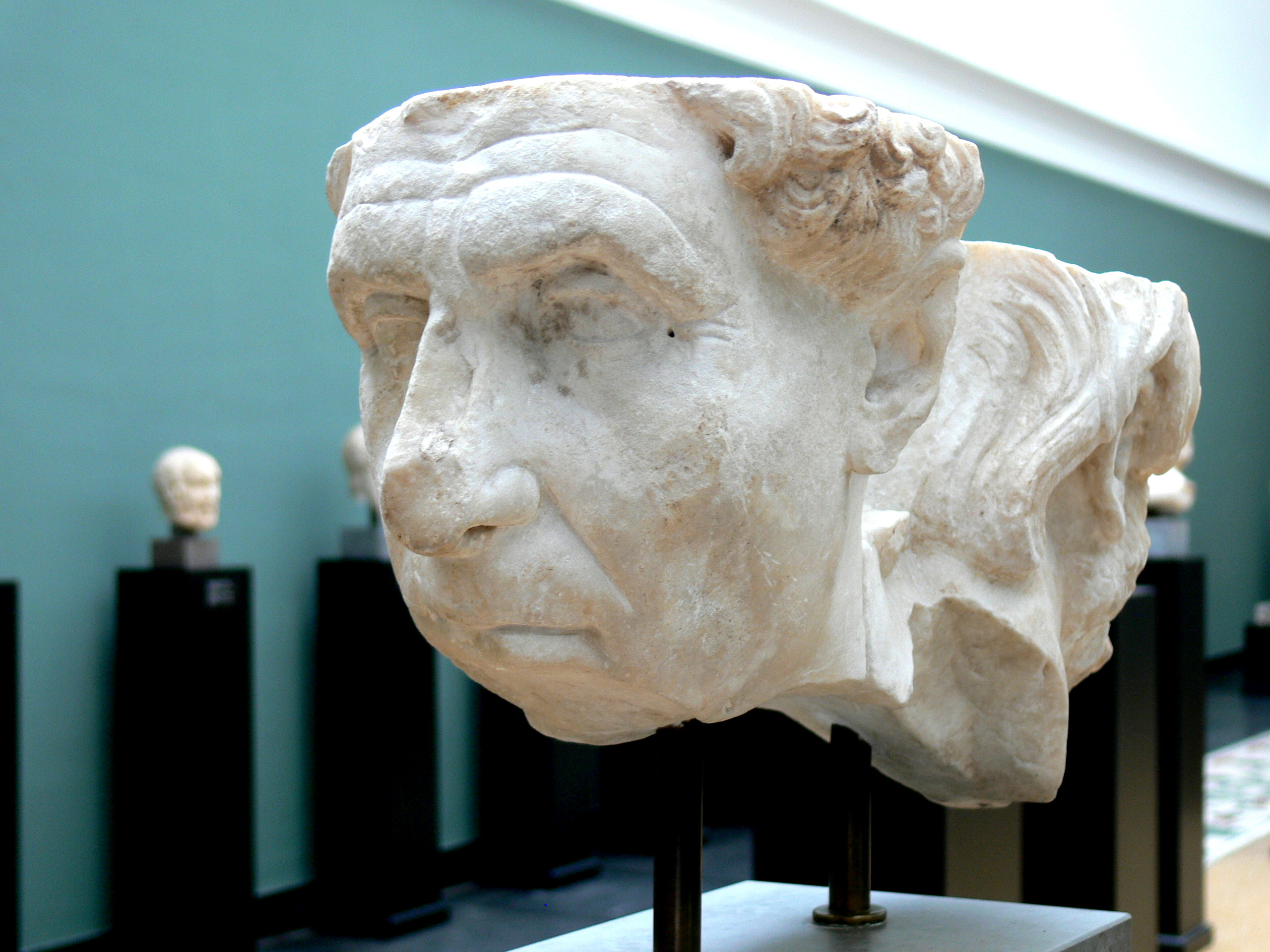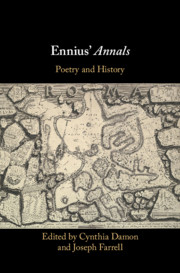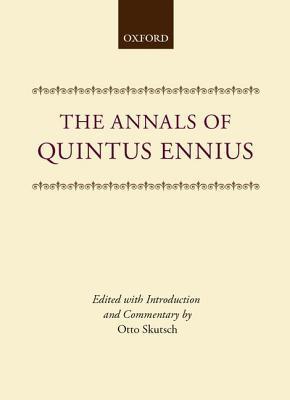Ennius: The Poet Who Shaped Roman Literature
In the annals of literary history, Ennius stands as a monumental figure in the evolution of Roman literature. Quintus Ennius, often heralded as the father of Roman poetry, laid the groundwork for a poetic tradition that would influence generations to come. Although much of his work survives only in fragments, his influence pervades the fabric of Roman culture and literature.
Early Life and Background
Ennius was born in 239 BCE in the town of Rudiae in Calabria, a region in southern Italy. This location placed him at a cultural crossroads. Rudiae was then part of Magna Graecia, an area heavily influenced by Greek colonization, which had a lasting impact on Ennius’s education and literary aspirations. Fluent in Oscan, Latin, and Greek, Ennius navigated easily through the tri-lingual world of ancient Italy, a skill that would later manifest in his literary creations.
His early life was characterized by military service, as he joined the Roman army where he served as a centurion. It was during the Roman campaigns in Sardinia that he caught the attention of Cato the Elder, a prominent Roman statesman. Impressed by Ennius’s intellect and linguistic prowess, Cato brought him to Rome in 204 BCE. From that point forward, Rome became the locus for Ennius’s literary ambition.
Ennius's Contribution to Roman Literature
Before Ennius, Roman literature was greatly influenced by Etruscan and Greek traditions. Poetry was mostly written in Saturnian meter, a native Italic verse form that paled in complexity and depth compared to its Greek counterparts. Ennius revolutionized this landscape by introducing the dactylic hexameter, the meter of Homeric epics, to Latin poetry—a change that granted Roman literature a newfound grandeur and dignity.
His most ambitious work, the "Annales," chronicled Roman history from the mythical founding of Rome by Aeneas to Ennius's contemporary era. Spanning eighteen books, the "Annales" not only presented a historical narrative but also celebrated the expansion and power of Rome. Ennius's imaginative retelling offered Romans a sense of identity and purpose through their storied past, positioning him as a crucial architect of Roman nationalism.
Exploring the Annales: A Refreshed Epic Tradition
The "Annales" marks Ennius's magnum opus, reflecting a deep admiration for Homer. He sought to do for Rome what Homer had done for Greek literature with the "Iliad" and the "Odyssey." Composing the epic in dactylic hexameter, Ennius set a precedent that later Roman epic poets, such as Virgil in his "Aeneid," would follow steadfastly.
The incorporation of Greek literary techniques and philosophical ideas into Roman themes enriched the narrative structure of the "Annales." Ennius did not merely translate Homeric epics into Latin; he infused them with Roman values, valorizing legendary figures and stirring the patriotic emotions of his Roman audience. The epic showcased significant historical events, such as wars and treaties, and interwove themes of fate and divine intervention, thereby crafting a narrative that was both instructive and celebratory.
Philosophical Influences and Literary Style
Ennius was also deeply influenced by the Hellenistic philosophical schools, particularly the ideas of Euhemerism which posited that the gods of mythology were deified humans. This influence is evident in his portrayal of the Roman pantheon in the "Annales," where he humanizes gods and attributes to them historical feats, thereby offering a rational explanation for mythological stories. This approach not only resonated with Roman audiences but also melded seamlessly with Roman civic religion and political ideologies.
Ennius's literary style was a tapestry of varied influences, blending Greek formalism with Roman themes. His adept use of metaphor and rhetoric demonstrated mastery over language, creating rich imagery and emotive expressions. Though composed for recitation, his works were known for their complex language and vivid portrayals, characteristic of the elevated literary standard he aspired to imbue in Roman literature.
Legacy and Impact
Ennius's contribution to Roman literature extends beyond his innovations in poetic form and narrative style. He effectively merged Hellenistic philosophies with Roman ideals, crafting a unique literary voice that echoed through the ages. As a precursor to greater literary works, such as those of Virgil and Ovid, Ennius's imprint on the Roman literary canon is indisputable.
Despite his formidable contributions, the dissolution of his works into fragments over time has rendered much of his legacy enigmatic. Yet, through citations by later Roman authors like Cicero and Virgil, Ennius's influence can be traced within the fundamental fabric of Roman poetics. His introduction of hexameter into Latin literature laid a durable foundation for the epic tradition that subsequent poets would build upon.
Ennius's mastery over language and his ability to transport Greek literary elegance into the Latin sphere ultimately established a romanizing effect that cemented his status as the progenitor of Roman literary excellence. As we delve further into Ennius's life and oeuvre, we begin to uncover the depths of his impact—a pioneer whose innovation bridged two mighty cultures into one literary lineage.
The Fragmentary Nature of Ennius's Works
The survival of Ennius's literary corpus has been a tale of loss and preservation against the ravages of time. Most of what we know about his work comes from later Roman authors who quoted and referred to him, thereby preserving fragments of his poetry. This piecemeal preservation challenges modern scholars as they reconstruct and interpret his oeuvre, yet these fragments provide invaluable insights into his thematic concerns and contributions to literature.
Despite the fragmentary nature of his extant works, each piece offers a glimpse into Ennius's perception of Rome and its storied past. The remnants of the "Annales," found mainly in the works of grammarians and commentators like Aulus Gellius, reflect his mastery in depicting Roman history with a sense of grandeur and heroism. Through these surviving lines, we catch fleeting but vivid images of battles, leaders, and divine interactions that defined Rome's early ethos.
Thematic and Stylistic Diversity
Beyond the "Annales," Ennius’s known body of work embraces a remarkable thematic diversity. He composed tragedies, satires, and philosophically oriented poems, showcasing a dynamic range that would inspire subsequent Roman writers. His tragedies, although lost, are known to have drawn inspiration from Greek plays, particularly from the tragedies of Euripides. This adaptation of Greek drama into Latin enriched Roman theatrical tradition, shaping the trajectory of Roman stagecraft.
Ennius's style was marked by its boldness and innovation. He confidently blended archaic Latin with Greek vocabulary, introducing his audience to a higher poetic diction. Meticulously crafted metaphors and ingeniously structured verses painted a vivid tableau of the Roman world, while his impressionistic lines allowed deeper philosophical introspection. His dramatic works, though perished, are believed to have displayed a profound engagement with human emotions and moral dilemmas, infusing Roman drama with a newfound intensity and philosophical depth.
Ennius’s Introduction of Satire and Its Impact
While Ennius is more celebrated for his epic narratives, his foray into satire heralded another significant literary advancement. Latin satire became a distinctive Roman genre, owing much to the groundwork established by Ennius and later expanded by poets like Lucilius, Horace, and Juvenal. Although his satirical works do not survive in full, their essence and tone have been inferred from indirect references.
The satires of Ennius explored societal and political themes, employing wit and critique to reflect on Roman customs and personal foibles. His utilization of humor as a narrative device introduced Romans to a literary form that allowed for cultural introspection and criticism, paving the way for satire as a literary vehicle for social commentary.
Ennius as a Historical and Cultural Bridge
Held in high esteem by his contemporaries and successive generations, Ennius served as a cultural bridge, marrying Greek and Roman literary traditions in a way that elevated Latin literature. His introduction of Greek stylistic elements enriched Latin poetics and provided a blueprint for Roman writers, fostering a cultural symbiosis that celebrated both Roman achievements and Greek artistic excellence.
Furthermore, Ennius embodied personal adaptability and cultural resilience, characteristics emblematic of the Roman ethos. His ability to embrace and synthesize diverse cultural influences reflects the broader Roman experience of absorbing and adapting external concepts while retaining a distinct Roman identity. Through his writings, he symbolically communicated the burgeoning political and cultural might of Rome, framing its narrative within a universal and historical context.
Philosophical Tinctures in Ennius's Works
The philosophical undertones in Ennius's works are particularly notable. His engagement with Euhemerism and other philosophical doctrines of his time allowed him to offer a rational interpretation of mythology and history. This rationalism resonated deeply within Roman intellectual circles, mirroring the Roman emphasis on practical wisdom and rational thought.
Ennius’s poetry frequently grapples with the themes of fate, divine intervention, and human agency, positioning these elements within the broader context of Rome’s historical destiny. Through his works, he philosophically questioned human existence and the divine machinery steering the course of history, reflecting the intellectual curiosity that was a hallmark of his era.
Enduring Influence and Scholarly Pursuits
The legacy of Ennius is further evident in the scholarly pursuits he inspired. His innovative blend of cultural narratives offered rich material for historians, philologists, and literary scholars striving to comprehend the intrinsic qualities of Roman poetry. His contributions remain a focal point for academic discussions on Latin literature's evolution, notably his role in shaping the literary idiom that defined Roman intellectual and cultural discourse.
As the precursor of Roman epic poetry, Ennius's works laid an essential foundation for future poets like Virgil, who acknowledged his debt to Ennius by modeling aspects of his "Aeneid" on the "Annales." Ennius's ability to infuse Roman history with the grandeur once reserved for Greek mythology ensured that his influence would transcend his own epoch, reverberating through the literary canon of the Roman Empire and beyond.
Through each surviving fragment, Ennius continues to speak to us, affirming his position as a pivotal figure in the symbiosis of Greek and Roman thought. His poetry not only captures the spirit of his time but also extends an enduring invitation to explore the rich tapestry of early Roman culture, urging us to appreciate the art of storytelling at its most foundational level. As we delve deeper into his literary legacy, we gain insight not only into Ennius himself but into the expansive potential of cultural exchange and its capacity to create enduring art.
The Philosophical Resonance of Ennius’s Poetry
One of the most profound aspects of Ennius's work is its philosophical resonance. Deeply influenced by the rationalistic philosophies permeating Greek thought, Ennius transcended traditional narrative boundaries, intertwining philosophical inquiry with historical recounting. His literary endeavors displayed an intellectual curiosity that propelled Roman literature into a domain enriched by philosophical discourse.
Ennius's philosophical engagement emerges through themes that probe fate, destiny, and divine influence—central motifs explored within the "Annales." His portrayal of historical events is imbued with a philosophical understanding of human agency, blending narrative with existential reflection. This methodology predates and influences later Roman poets who similarly explored the complex dynamics between human actions and the divine, as seen in Virgil’s "Aeneid."
Influence on Roman Language and Identity
Ennius's linguistic contributions cannot be overstated. As a pioneer in the adaptation of the Homeric hexameter into Latin, he elevated the linguistic status of Roman poetry. Before Ennius, Latin lacked a unified literary form, with its language considered less refined compared to Greek. By blending the elegance of Greek linguistic structures with the raw power of Latin, Ennius forged a distinct poetic voice that commanded respect both culturally and linguistically.
This synthesis of Latin and Greek styles empowered subsequent Roman writers to adopt and adapt Ennius's model, leading to a flourishing of Latin literature centered around cohesive identity and expression. Ennius’s ability to convey complex ideas and emotions through his innovative use of language helped transform Latin into a robust literary language capable of expressing the profundity traditionally associated with Greek works.
Ennius's Role in the Evolution of Roman Epic
Following Ennius’s groundbreaking endeavors, Roman literature experienced a renaissance in epic poetry. His "Annales" set a high bar both thematically and structurally, providing a template that infused grandeur into the Roman literary canon. By anchoring Roman history within a narrative framework that celebrated Rome's legendary past, Ennius laid the cornerstone for Rome’s epic tradition, one later fortified by Virgil.
The poetic and thematic intricacies seen in Ennius’s work made it a seminal influence on writers like Lucan and Statius. His innovative approaches in synchronizing history with mythology carved a path for future epics that would explore both historical and fictional narratives with equal vigor. Ennius provided a frame of reference that allowed subsequent authors to engage with and expand upon his vision of Rome’s destiny within the broader spectrum of world history.
Bridging Cultures Through Literary Innovation
Ennius’s literary ingenuity was not merely confined to poetry but also extended to his role as a cultural ambassador. By seamlessly integrating Greek artistic traditions into Roman narrative structures, he forged an intellectual bridge that connected disparate cultures. His literary compass pointed towards a cultural amalgamation that celebrated Roman ideals while embracing Greek artistry—a harmony that symbolized Rome’s cultural ascendancy.
This synthesis reflected not only on the pages of his epics but also in the broader cultural exchanges between Rome and Greece. Ennius’s work fostered an appreciation for Greek artistic and intellectual thought, driving cultural dialogues that enriched Roman society. His ability to navigate and reconcile these diverse influences affirmed Rome’s place as the inheritor of Hellenistic cultural legacies, cementing its status as a major civilization in the ancient world.
Ennius: A Precedent for Later Literary Figures
The enduring impact of Ennius is perhaps best understood in the context of the legacy he left for aspiring Roman writers. As a pioneer, he established precedent-setting practices that have been echoed and elaborated upon by literary figures across the ages. Ovid, Lucretius, and Horace, among others, found inspiration in Ennius’s synthesis of poetic form and intellectual content, each embracing and expanding upon the paths he charted.
Virgil, in particular, expressed significant homage to Ennius, modeling aspects of his "Aeneid" after the "Annales." Throughout the "Aeneid," echoes of Ennius’s themes of fate and divine encounter reverberate, demonstrating the enduring pertinence of Ennius’s legacy. By weaving history and myth into a singular narrative fabric, Ennius paved the way for epic poets who aspired to depict Rome’s glorious past as both historical and mythical in magnitude.
The Enduring Relevance of Ennius
Despite the fragmentary survival of his works, Ennius's influence on Roman literature and culture cannot be overstated. He not only transported Greek stylistic and thematic elements into Latin literature, but he also articulated a vision of Rome's destiny that became integral to its national identity. Ennius effectively transformed the landscape of Roman poetry, ensuring that the cultural heritage of Rome would be both celebrated and philosophically interrogated.
Ennius’s poetry stands as a testament to the power of cultural amalgamation and literary innovation. Through his works, he ignited a transformative wave in Latin literature that validated the artistic potential of Rome’s linguistic and cultural legacy. Ennius remains a towering figure, whose literary echoes can still be traced in the grand narratives and epic tales that define Roman and, ultimately, Western literary traditions. His contributions, while often veiled in the fragmented relics of history, invite continued exploration and appreciation, reaffirming his position as a timeless figure in the world of letters.





Comments